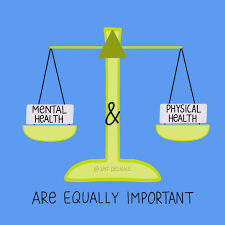The Effects of Social Media on Celebrities

The social media world is not always kind to celebrities when they experience public mental issues.
Britney Spears, Amanda Bynes, Ye (Kanye) West, Kurt Cobain, and many more have been subjected to public scrutiny for their mental illnesses. For instance, singer Brtiney Spears, who suffers from bipolar disorder, was placed into a conservatorship in February of 2008 after a stay in a psychiatric hospital, an evaluation, and public breakdowns. The conservatorship took away Spears’ access to her finances and limited her rights to medical assistance and decisions. Prior to being placed into a conservatorship by her family, the media picked Spears apart for her actions despite the fact that she was struggling with an illness.
The media is more sympathetic towards those struggling with their physical health, rather than mental because of the stigma surrounding psychological disorders. Sophomore, Luis Reyes, thinks it’s because physical disorders are mostly visible on the outside, while mental disorders can’t be seen. This makes it hard for the public to really know if someone is being truthful about their ‘diagnosis’.
“We never know if they are lying about their mental health for sympathy or to garner attention,” said Reyes. “ We can visually see if they are having physical health issues. But when it comes to mental health, we have no solid proof that they have said mental health aside from them just saying it. And we never know if the celebrity has no limits to the lies they tell.”
Regardless of how the mental health and physical health of celebrities are compared, they both have an affect on the fans. For example, when actor Chadwick Boseman died in 2020 from colon cancer, the heartbroken admirers of Marvel’s ‘Black Panther’, which Boseman starred in, voiced their sadness over his passing. The death was not only a shock because of his age, but also because his cancer diagnosis wasn’t revealed until after he died. Senior, Avery Jeffers, praises Boseman’s strength for working while battling a disease.
“I guess I feel bad for him, because they have to suffer through that but it also makes me respect him for still acting since he’s an actor still living with his illness,” said Jeffers.
Similarly to Chadwick Boseman’s shocking battle with cancer, mental illnesses are sometimes overlooked until it is too late. Last month, former Miss USA, Cheslie Kryst took her life after a private battle with depression. Other celebrities who have committed suicide include Swedish DJj Avicii, chef Anthony Bourdain, and guitarist Kurt Cobain from the band Nirvana, and many more.
“I feel like mental health issues aren’t as commonly talked about, compared to the physical ones in celebrities. An example would be like how everyone talks about Robin Williams and how he had dementia but not about his depression that led to suicide,” said Jeffers.
Sophomore, Madison Nguyen, chooses to focus on what the celebrities choose to do with their time, rather than what struggles they are facing because she believes that they are more than that.
“The health issues faced by my idols don’t really affect me because it doesn’t really affect me because it doesn’t really change how I view them,” said Nguyen. “Because when I think about a celebrity I look up to and if they do have any health problems, it’s not the first thing I think of. I think about the achievements they have or what they’ve been in or done.”
Change needs to happen not only for celebrities, but also for normal people. Sympathy should be given to anyone with a struggle, whether or not it’s on the outside or inside. Getting rid of the stigma surrounding mental health for celebrities could help eliminate it for regular people. Because when they see it being accepted in the media, they can be more comfortable and not feel judged.
